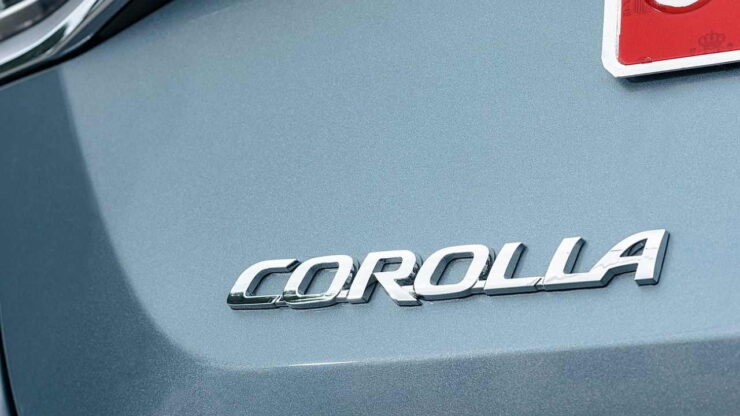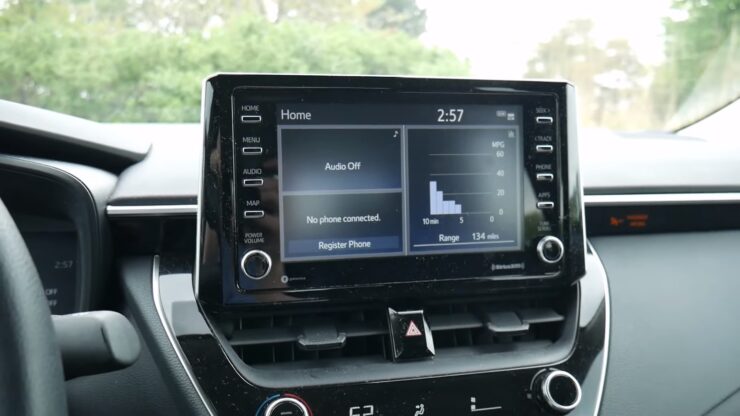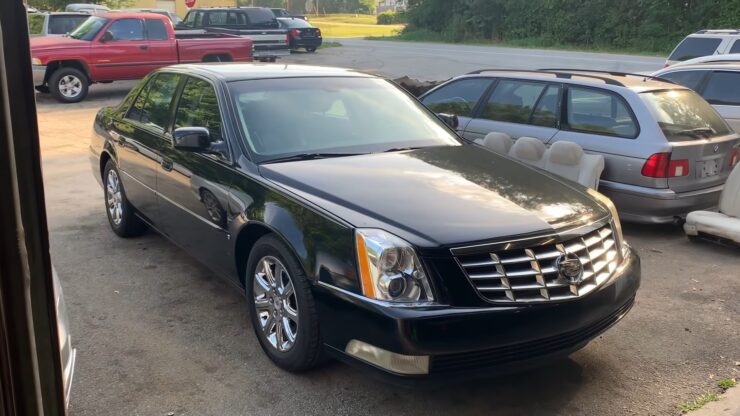A car that’s as ubiquitous as it is reliable. But let’s be real—no car is perfect, not even the Corolla. As someone who’s traveled extensively and tested a wide range of cars, I can tell you that even the most dependable vehicles have their quirks. Today, we’re diving deep into the common problems you might encounter with your Toyota Corolla, and I’ll give you the lowdown on how to fix them. Buckle up!
Most Common Issues
Creaking Front Suspension
The front suspension of your Corolla is like the legs of a marathon runner—strong but not invincible. If you’ve been hearing creaks and clunks, especially in 11th-generation models (2014-2019), you’re not alone.
Causes
This issue often starts at relatively low mileage. The creaking sound is usually caused by worn-out lower control arm bushings. Over time, these bushings can dry out, especially in colder weather, leading to the annoying creaks you hear.
- Weather Conditions: Cold weather can exacerbate the issue.
- Dirt and Debris: Accumulation of dirt can make the problem worse.
Solutions
The good news is that this is generally a minor issue. You can often resolve it by spraying the ends of the control arm where the bushing is located with some silicone spray. If you’re a DIYer like me, you might even opt for packing it with grease, although that’s a messier solution.
- Silicone Spray: A quick and clean solution.
- Grease: A messier but effective alternative.
Excessive Oil Consumption
Ah, the dreaded oil consumption problem. This issue is particularly prevalent in the 10th-generation Corolla XRS models, equipped with a 2.4-liter engine. But don’t worry, I’ve got some insights to share.
Causes
The primary culprit here is the piston ring design, which fails to let the oil back into the crankcase, causing it to burn up in the combustion chamber. This issue is more common in the 2009 and 2010 models.
- Piston Ring Design: The main cause of the problem.
- Poor Maintenance: Can also lead to oil consumption issues.
Solutions
The most effective solution is to replace the pistons and piston rings with updated parts from Toyota. However, this is a big job that requires removing the engine and tearing it down completely. If you’re out of warranty, you might just opt for frequent oil checks and top-ups.
- Piston and Ring Replacement: The most effective but labor-intensive solution.
- Regular Oil Checks: A more practical approach for out-of-warranty vehicles.
Blown Head Gasket
The head gasket is like the seal between two lifelong friends—it keeps things running smoothly. But when it fails, it can cause a host of problems, especially in older 10th-generation models.
Causes
Head gasket failures can manifest in various ways, including rough idling, poor fuel economy, and even engine knock. These issues are more common in Corollas that have clocked in over 100,000 miles.
- High Mileage: A common factor in head gasket failures.
- Poor Maintenance: Can exacerbate the issue.
Solutions
A competent mechanic can diagnose a blown head gasket through a series of tests, including a compression test and a leak-down test. If caught early, replacing the head gasket should resolve the problem.
- Diagnostic Tests: Essential for confirming the issue.
- Head Gasket Replacement: The most effective solution if caught early.
Radio Issues
The radio is the unsung hero of any car’s interior, providing entertainment and important information. However, 11th-generation Corollas (2014-2019) have had their share of radio issues, especially those equipped with navigation features.
Causes
The most common problem is the radio getting stuck on the boot screen or an update screen. This issue seems to be isolated to earlier head units and is less prevalent in later model years.
- Software Glitches: Often the root cause of the problem.
- Hardware Failures: Less common but still possible.
Solutions
You can try resetting the radio by holding down the power button or disconnecting the battery. If that doesn’t work, replacing the unit might be the only option. As someone who’s tinkered with many a car radio, I can tell you that aftermarket units with CarPlay and Android Auto are a cost-effective and feature-rich alternative.
- Resetting the Unit: A simple first step to resolve the issue.
- Aftermarket Replacement: A more permanent solution that can add features.
Check Engine Light – System Too Lean
The Check Engine Light (CEL) is like your car’s way of saying, “Hey, something’s not right here.” A common issue in 9th-generation Corollas is the CEL illuminating due to a lean air-fuel ratio.
Causes
The most common cause is a leaking intake manifold gasket. The original gasket is prone to failure, allowing more air into the combustion chamber, which triggers the CEL.
- Leaking Intake Manifold Gasket: The primary culprit.
- Faulty Sensors: Can also cause incorrect air-fuel ratio readings.
Solutions
Replacing the intake manifold gasket with Toyota’s updated orange silicone gasket usually solves the problem. If the issue persists, you might need to check and replace sensors like the Mass Air Flow (MAF) or O2 sensor.
- Gasket Replacement: The most effective solution.
- Sensor Checks: A secondary step if the problem persists.
Airbag Recall Issues
Airbags are crucial for safety, but the Corolla has had its share of airbag-related recalls, affecting models from 2003 to 2019. As a seasoned traveler and car tester, I can’t stress enough the importance of addressing these recalls promptly.
Causes
The infamous Takata airbag recalls have affected many Corollas. Issues range from airbags failing to deploy to the airbag light illuminating on the dashboard.
- Takata Recalls: A widespread issue affecting many models.
- Faulty Airbag Systems: Can lead to non-deployment in an accident.
Solutions
The first step is to check your VIN on Toyota’s recall site. Toyota performs airbag recalls free of charge, so there’s no reason to delay. Depending on the model year, the recall repairs can vary but are essential for your safety.
- VIN Check: The first step in resolving the issue.
- Free Repairs: Offered by Toyota for affected vehicles.
Transmission Issues
The transmission is the heart of your car’s drivetrain, and when it starts acting up, it’s a cause for concern. The Corolla is generally reliable, but some models, particularly those from the early 2000s, have had transmission issues.
Causes
The most common issues include slipping gears and hard shifting. These problems are often due to worn-out transmission fluid or a failing transmission control module.
- Worn-Out Fluid: Can lead to slipping gears.
- Failing Control Module: Responsible for hard shifting.
Solutions
Regularly changing your transmission fluid can go a long way in preventing these issues. If you’re experiencing hard shifting, a diagnostic scan can reveal if the transmission control module is at fault. Replacing it is usually the best course of action.
- Fluid Change: A preventive measure.
- Diagnostic Scan: Essential for pinpointing the issue.
Brake Problems
Brakes are your first line of defense on the road. Some Corolla owners, especially those with 2009-2010 models, have reported issues with premature brake wear.
Causes
The main cause is usually the brake pads wearing out faster than they should, often due to poor-quality materials or excessive braking.
- Poor-Quality Materials: Lead to premature wear.
- Excessive Braking: Can exacerbate the issue.
Solutions
Switching to high-quality brake pads and rotors can solve this problem. If you’re a DIYer, this is a job you can tackle over a weekend. Otherwise, a trip to a trusted mechanic should do the trick.
- Quality Parts: The key to long-lasting brakes.
- Mechanic Visit: For those less inclined to DIY.
Electrical Issues
Electrical issues can be a real headache, affecting everything from your lights to your power windows. While not as common as other problems, they’re worth mentioning.
Causes
Faulty wiring, blown fuses, and malfunctioning sensors are the usual suspects here. These issues can affect various systems, including the power windows and dashboard lights.
- Faulty Wiring: A common cause of electrical issues.
- Blown Fuses: Can lead to multiple systems failing.
Solutions
Start by checking the fuses and replacing any that are blown. If the problem persists, a full electrical diagnostic is in order. This is a job best left to professionals, given the complexity of modern car electrical systems.
- Fuse Check: A simple first step.
- Professional Diagnostic: Recommended for persistent issues.
Fuel Efficiency Drop
A drop in fuel efficiency can hit your wallet hard. While Corollas are known for their excellent fuel economy, some owners have reported a noticeable decrease over time.
Causes
Dirty fuel injectors, a clogged air filter, or even underinflated tires can be the culprits. These issues can lead to poor combustion and reduced fuel efficiency.
- Dirty Fuel Injectors: Affect fuel atomization.
- Clogged Air Filter: Restricts airflow to the engine.
Solutions
Regular maintenance is key. Replace your air filter and clean the fuel injectors as part of your routine service. Checking your tire pressure regularly can also help maintain optimal fuel efficiency.
- Regular Maintenance: Essential for keeping fuel efficiency high.
- Tire Pressure Checks: An often-overlooked factor.
Toyota Corolla Model Years With the Most Problems
Every car model has its good and bad years, and the Corolla is no exception. Based on data, certain years stand out for having more issues than others.
Causes
The most problematic years for the Corolla are 2009, 2010, and 2011, with issues ranging from oil consumption to airbag recalls.
- 2009 Models: Known for excessive oil consumption.
- 2010 and 2011 Models: Also problematic, especially for airbag issues.
Solutions
If you’re in the market for a used Corolla, it might be wise to avoid these years or at least be prepared for potential issues. Always get a pre-purchase inspection from a trusted mechanic—like I used to be—to ensure you’re making a sound investment.
- Pre-Purchase Inspection: Essential when buying a used Corolla.
- Avoid Certain Years: Particularly 2009, 2010, and 2011 models.
FAQ
Are Toyota Corolla hybrid models prone to the same issues as the non-hybrid versions?
Generally, the hybrid models have their own set of issues, mostly related to the battery and electric motor. However, they share the same basic architecture with their non-hybrid counterparts, so some problems like suspension and brake issues could be common to both.
How often should I change the transmission fluid to avoid transmission issues?
For most Toyota Corollas, it’s recommended to change the transmission fluid every 60,000 to 100,000 miles. However, always refer to your owner’s manual for the most accurate information tailored to your specific model.
Are aftermarket parts a good option for fixing common Corolla problems?
Aftermarket parts can be a cost-effective solution, but it’s crucial to ensure they meet or exceed OEM specifications. Always consult with a trusted mechanic to make sure you’re not compromising the quality and safety of your vehicle.
Is it worth investing in an extended warranty for a used Toyota Corolla?
An extended warranty can provide peace of mind, especially for models known to have certain issues. However, given the Corolla’s reputation for reliability, you might find that the cost of the warranty outweighs the benefits. It’s a personal decision that should be made based on the car’s history and your comfort level with potential repairs.
What are the signs that my Toyota Corolla may have a blown head gasket?
Symptoms of a blown head gasket can include white smoke from the exhaust, coolant loss with no visible leaks, and a milky substance under the oil cap. If you experience any of these, get your car checked immediately.
Can software updates resolve some of the radio and electrical issues?
Yes, some radio and electrical issues can be fixed with software updates. However, these updates usually need to be performed by a dealer and may not resolve hardware-related problems.
Final Thoughts
Well, there you have it—a comprehensive guide to the common problems you might encounter with your Toyota Corolla and how to address them. As someone who’s been around the block a few times, both literally and figuratively, I can tell you that a well-maintained Corolla is a reliable companion on the road. So keep these tips in mind, and you’ll be well on your way to many more miles of happy driving. Cheers!

















